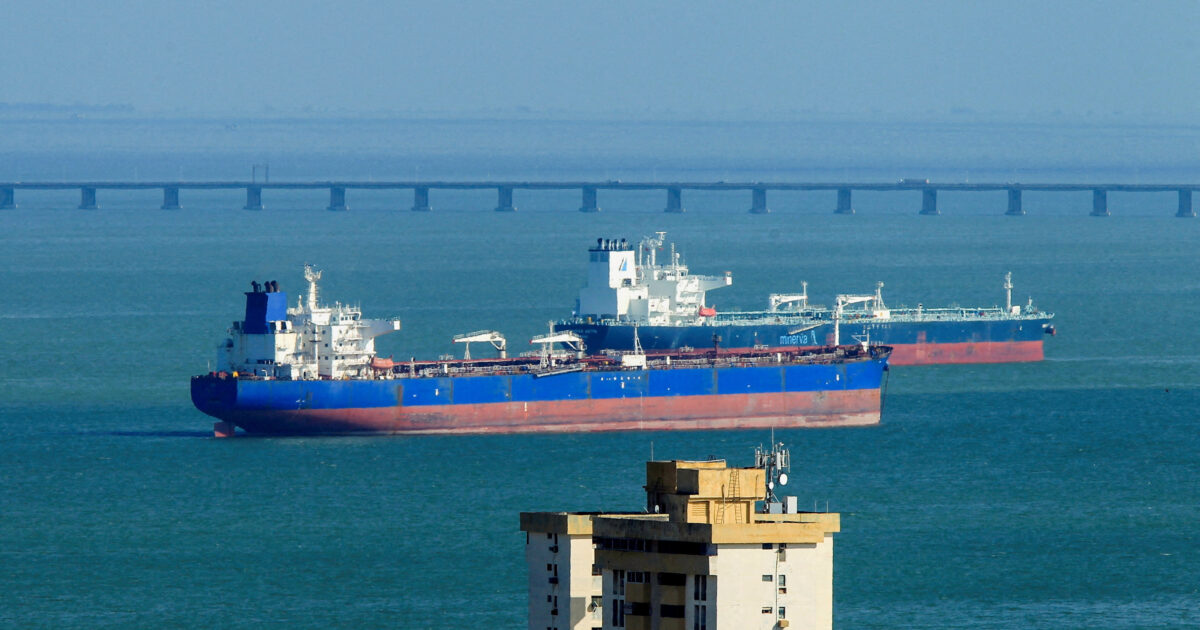Rapid developments have been noted recently in all research concessions hydrocarbons. In addition to the recent signing of ExxonMobil’s entry into “block 2”, negotiations with the Chevron for the areas south of the Peloponnese and south of Crete.
According to the information from the Hellenic Hydrocarbons and Energy Resources Management Company, which is conducting the negotiations with the Chevron – Helleniq Energy Consortium, the financial terms have been closed and the discussions have moved to the legal part of the contracts. It is recalled that the two companies have been declared as preferred investors for the 4 regions (South of the Peloponnese, A2, “South of Crete 1” and “South of Crete 2” and the schedule of actions foresees, after the completion of the negotiation and the signing of the contracts, an audit by the Court of Auditors and a submission to the Parliament for sanction.
The developments in the Ionian Sea are more advanced with the signing last week of the agreement – a milestone for ExxonMobil’s entry into the concession of “block 2” west of Corfu on the border with the Italian EEZ, an agreement that paves the way for the execution of the first, after 40 years, exploratory drilling in Greece.
The agreement for ExxonMobil’s entry into “block 2” was signed as part of the intergovernmental transatlantic energy cooperation (P-Tec) held last week in Athens. In the context of which the Minister of Environment and Energy Stavros Papastavrou spoke of a “historic opportunity” for our country as, if the existence of commercially exploitable deposits is confirmed, conditions are created for the country’s energy self-sufficiency.
Based on the agreement, ExxonMobil acquires 60% of the Consortium while Energean retains 30% and Helleniq Energy 10%. The next steps in the said concession include, in addition to the required permits and the extension of the research period that ends next March, the re-evaluation of the seismic data from the area that have been collected in previous years and the making of the investment decision to carry out research drilling, cost of 50 – 100 million dollars. The “window of opportunity” to ensure the availability of the required equipment for drilling is placed at the end of 2026 with the beginning of 2027 as for that period Energean has an “option” to use the drilling rig that it has already reserved for its activities in Israel.
If the results of the exploratory drilling are positive, new exploratory drilling will follow to estimate the size and finally production drilling with investments placed at the level of 5 billion dollars for the construction of the pumping, processing and transport of natural gas that may begin to flow after 2030.
Early indications are encouraging for two reasons: First, the processing of the seismic data so far indicates that the potential resources in the structure “Asopos” of “block 2” reach 200 billion cubic metersat a water depth of 850 meters and a total depth of 4000 meters below sea level. And secondly, in Western Greece there is a confirmed oil system.
On the sidelines of the meeting, ExxonMobil’s vice-president, responsible for international research activities, John Ardil, said that the interpretation of the data from the seismic surveys in the other two marine blocks, in which the company participates together with Helleniq Emergy, west and southwest of Crete, is in progress, in order to decide whether research drilling will proceed there as well, timing the decisions for mid-2026.
Particularly important from a geopolitical point of view were the agreements signed within the framework of P-Tec for the channeling of liquefied natural gas from the USA through the Greek system to the countries of the region up to Ukraine. This plan highlights the US as a key supplier to the region and Greece as a key transit hub as large quantities will be channeled through the Greek system. But also in cooperation with Greek shipping and the fleet of ships transporting Liquefied Natural Gas (LNG) to which special reference was made by the US Secretary of Energy Chris Wright who participated (as did the Secretary of the Interior Doug Burgum) in P-Tec.
The prospects for the project are now widening as, in addition to the expected increase in consumption in the region, additional needs are created by the cessation of Russian gas imports, gradually until the end of 2027 according to the latest decisions of the EU.
According to the estimates of the Greek market, an increase in the demand for natural gas is expected in the coming years Central and Eastern Europe by 15-17 billion cubic meters per year while another 15-16 billionis the gap that will be created by the interruption of Russian gas. Greece can cover a significant part of these quantities as the export potential from the Greek system with the upgrades made and planned will reach 10 billion. cubic meters. That is, one third of the additional needs of the region. Given the political support of the plan, the conclusion of trade agreements is a condition for further increasing Greek exports to the region. This started on Friday (7.11.25) with the signing of her agreement ATLANTIC – SEE LNG TRADE (joint company of the AKTOR group and DEPA Emporia) for the purchase of LNG from the American Venture Global, which is among the largest LNG producers in the USA. On the same day, agreements were also signed with Romanian and Ukrainian companies for the resale of gas.
As DEPA sources point out, the contract with Venture Global is the first long-term contract for the purchase of liquefied natural gas in the region, while at the same time the company will be the only one in the region to have a contract for gas from a pipeline (this is the TAP pipeline).
